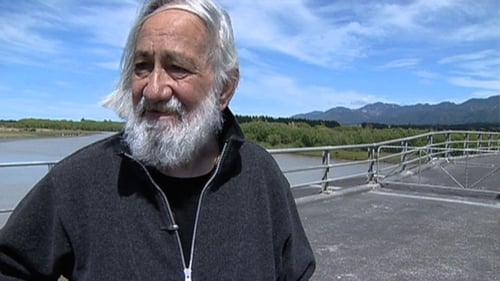Barry Barclay
Birth : 1944-05-12, Masterton, New Zealand
Death : 2008-02-19
History
Barry Barclay was a New Zealand filmmaker and writer of Māori and European descent.

Barry Barclay was a New Zealand/Aotearoa director of documentaries and feature films. He is regarded as one of the world's first, and very influential, Indigenous film makers. The film The Camera on The Shore is a feature length introduction to Barry, and to his film making.

Writer
A documentary about the threat posed to New Zealand's Kaipara Harbour by rapacious commercial fishing and development.

Director
A documentary about the threat posed to New Zealand's Kaipara Harbour by rapacious commercial fishing and development.

Writer
This remarkable film traces the final impact which both races had on the indigenous Moriori of the Chatham Islands. Moriori were a peaceful people who vowed never to take up arms against another human being. They were capable of defeating the invaders, but chose not to. Drawing inspiration from Michael King's seminal book Moriori, The Feathers of Peace brings the truth about what happened on the Chathams to an even wider audience. To do that, the film uses modern television news techniques and dramatized documentary.

Director
This remarkable film traces the final impact which both races had on the indigenous Moriori of the Chatham Islands. Moriori were a peaceful people who vowed never to take up arms against another human being. They were capable of defeating the invaders, but chose not to. Drawing inspiration from Michael King's seminal book Moriori, The Feathers of Peace brings the truth about what happened on the Chathams to an even wider audience. To do that, the film uses modern television news techniques and dramatized documentary.

Screenplay
A hundred years after the theft from New Zealand of three irreplaceable tribal carvings, two Maori, Rewi and Peter, decide it's time for ancient grievances to be put right. Both men are in Berlin where the carvings are stored in a museum. Plans go awry when a group that Peter has assembled breaks into the museum. Rewi persuades the others to let him put his own, more daring plan into action. Tensions build and international media interest broadens when a sniper's bullet hits Peter.

Director
A hundred years after the theft from New Zealand of three irreplaceable tribal carvings, two Maori, Rewi and Peter, decide it's time for ancient grievances to be put right. Both men are in Berlin where the carvings are stored in a museum. Plans go awry when a group that Peter has assembled breaks into the museum. Rewi persuades the others to let him put his own, more daring plan into action. Tensions build and international media interest broadens when a sniper's bullet hits Peter.

Director
Set in and around the fictional town of Kapua in 1948, Ngati is the story of a Māori community. The film comprises three narrative threads: a boy, Ropata, is dying of leukaemia; the return of a young Australian doctor, Greg, and his discovery that he has Māori heritage; and the fight to keep the local freezing works open.

Director
In a Maori settlement, Ngati Toa leader Te Rauparaha composes the famous chant "Ka Mate", also known as the haka, after evading enemy capture by hiding in a kumara pit.

Writer
Indigenous farmers in Peru, Nicaragua, Italy, France, Australia and New Zealand share their intimacy with the land and the seeds they have nurtured for generations; global corporations attempt to 'own' the intellectual property of seeds.

Director
Indigenous farmers in Peru, Nicaragua, Italy, France, Australia and New Zealand share their intimacy with the land and the seeds they have nurtured for generations; global corporations attempt to 'own' the intellectual property of seeds.

Writer
Actor Martyn Sanderson returns in 1977 to the Hokianga of his youth and visits his elderly and romantic aunt, Olive Bracey. Her reminiscences of pioneer life mesh with nostalgic songs and readings from her fiction.

Director
Actor Martyn Sanderson returns in 1977 to the Hokianga of his youth and visits his elderly and romantic aunt, Olive Bracey. Her reminiscences of pioneer life mesh with nostalgic songs and readings from her fiction.

Writer
Conversations with four people — an artist, a woman struggling with her identity as a high achiever, an actor, and a priest — exploring their inner worlds, their self-image and how they feel they fit into society.

Director
Conversations with four people — an artist, a woman struggling with her identity as a high achiever, an actor, and a priest — exploring their inner worlds, their self-image and how they feel they fit into society.













